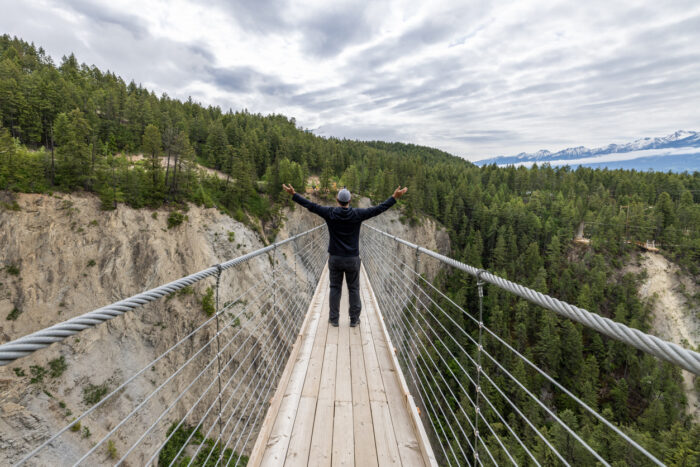This Shabbat is the second of the seven Sabbaths that span from remembering / re-experiencing the devastation and destruction of Tisha b’Av to the reconstruction and renewal of Rosh Hashanah and Yom Kippur. Traditionally called the “Seven (Sabbaths) of Comfort,” these seven weeks are illuminated by Torah and Haftorah readings that, taken together, comprise a kind of toolkit for building the bridge that spans these events and helping us cross it.
We all need that bridge, and to be able to cross it, at some point(s) in our lives. Sometimes the challenges are more personal and sometimes they are more communal, but we have all known dark times and longed to construct a path to times that are lighter. This week I want to consider a way to do so, as suggested by our parshah.
This week’s Torah reading opens with the words of Deuteronomy 7:12-13:
“If you will heed these ordinances and safeguard them by studying how to perform them, and perform them, God, your God, will keep the covenant for you, as well as the kindness that He swore to your ancestors. He will love you, bless you, and multiply you. He will bless the fruit of your womb; the fruit of your soil: your grain, your wine, and your oil; the offspring of your cattle and the choice of your flocks—in the land that He swore to your forefathers to give you.”
More promises follow, leading up to the grand pledge in verse 16 that the Israelites will be victorious over all those who stand between them and their fully inheriting the land that God promised to them all the way back to Abraham. But immediately after, verses 17-19 share this:
“Perhaps you will say to yourself, ‘These nations are more numerous than me; how will I be able to drive them out?’ You must not fear them. You must remember well what God, your God, did to Pharaoh and to all of Egypt: the great trials that you saw with your own eyes, the signs, the marvels, the mighty hand, and the outstretched arm with which God, your God, took you out. So will God, your God, do to all the peoples whom you fear.”
What is going on? Why would the people doubt or fear if God is making the promise? And if they are the kind of people who have doubts and fears even when God has promised that they need not have them, then what value is there in God making a promise as beautiful as recorded in the opening verses?! In fact, if this were actually about faith and doubt in God or God’s promises, this narrative construction would make little sense.
The key to understanding this passage lies, as it often does, not between God and us, but between us and ourselves—specifically in this case, in the role of personal experience in shaping what and whom we believe.
Based upon God’s immediate pivot from promise to panic in God’s description, it seems all but guaranteed that the people will be afraid, and God knows that simply commanding them to have no fear will not be a sufficient response. Instead, the people are invited to remember the past—what they themselves have seen and experienced—and based on that, find the ability to trust that things will be okay.
This is a story not about belief in God, but about appreciating the power of personal experience. The command isn’t not to fear because God is God and God says so. This is a story about the people being fearless because they have personally experienced success against long odds before. This story invites us to examine our past, appreciate what has worked, and use those experiences to strengthen our trust that good things that have happened before can and will happen again.
We can be fearless, according to this story, not because of what someone else says—even when that someone is God—but because we trust our personal experiences, especially those in which we were most successful. Knowing that our read of reality is strongly shaped by our past experiences, and privileging our good experiences over our bad ones as suggested here, without pretending away our fears, may be the most important tool shared in this week’s installation of the seven-segment bridge that spans from Tisha b’Av to Rosh Hashanah and Yom Kippur.
To be able to build and cross the bridges we need, we must remember and better integrate how our sense of where we are and where we are going is profoundly shaped by where we have been and what we experienced when we were there. We must honor the fears we feel, while trusting the reality of our past successes even more. Only then will we inherit the full promise of our lives, as our ancestors came to inherit the land they were promised.

